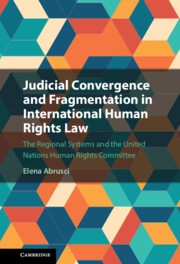Ensuring respect for, and protection of, the wounded and sick and delivery of health care to them were at the origin of the Red Cross and Red Crescent Movement, as well as the development of international humanitarian law (IHL). In today's armed conflicts and other emergencies, the problem is not the lack of existing international rules but the implementation of relevant IHL and international human rights law (IHRL) which form a complementary framework governing this issue. Against the backdrop of the different manifestations of violence observed by the ICRC in the field and expert consultations held in the framework of the Health Care in Danger Project, this article identifies commonalities between the two legal regimes, including with respect to obligations to provide and facilitate impartial health care; prohibitions of attacks against wounded and sick and health-care providers; prohibitions to arbitrarily obstruct access to health care; prohibitions to harass health-care personnel, in violation of medical ethics; or positive obligations to ensure essential medical supplies and health-care infrastructure and protect health-care providers against violent interferences by others. The article concludes by indicating certain areas where implementation of existing IHL and IHRL is needed, including in domestic normative frameworks, military doctrine and practice, as well as training of health-care personnel on these international legal frameworks and medical ethics.


